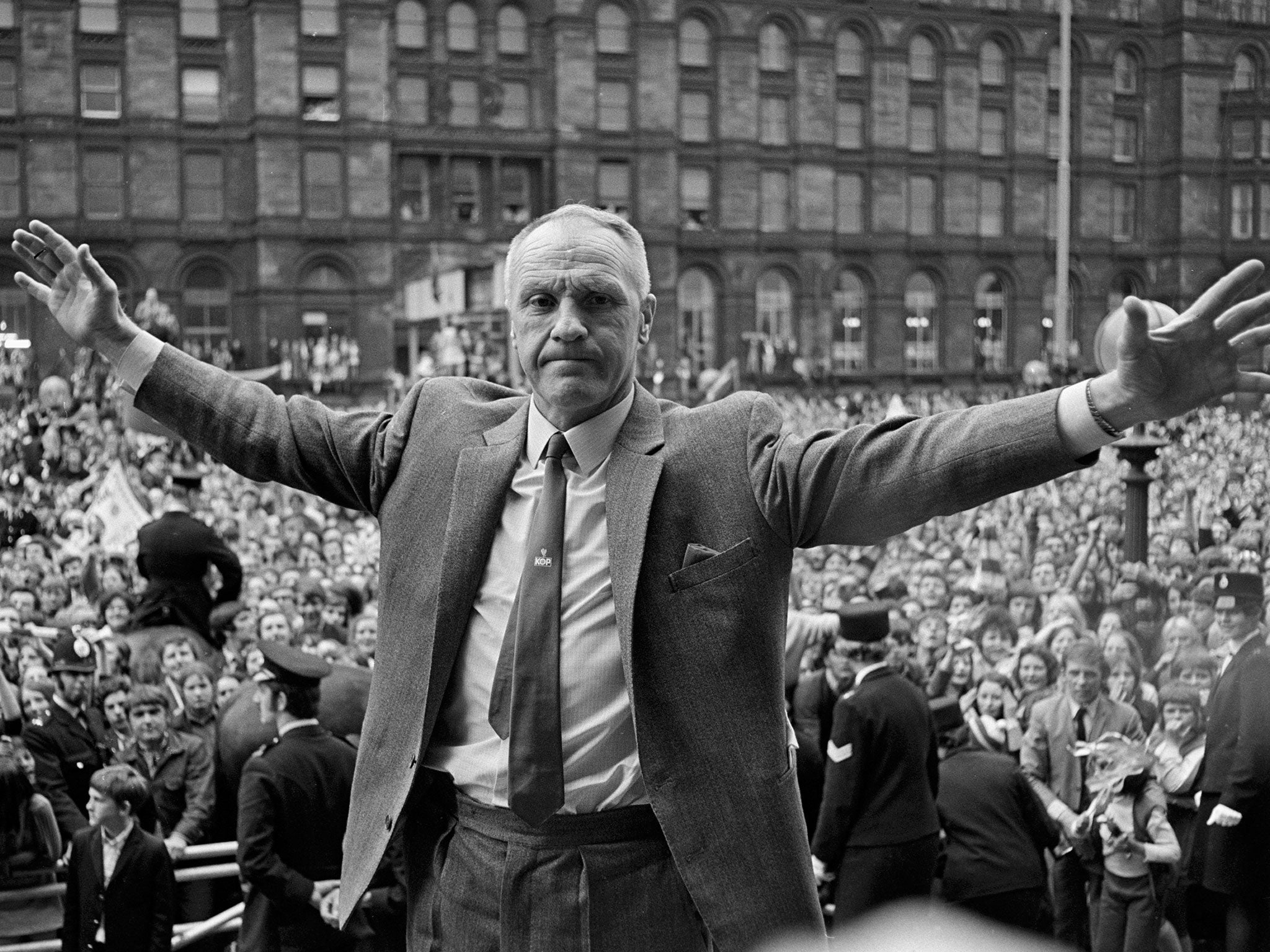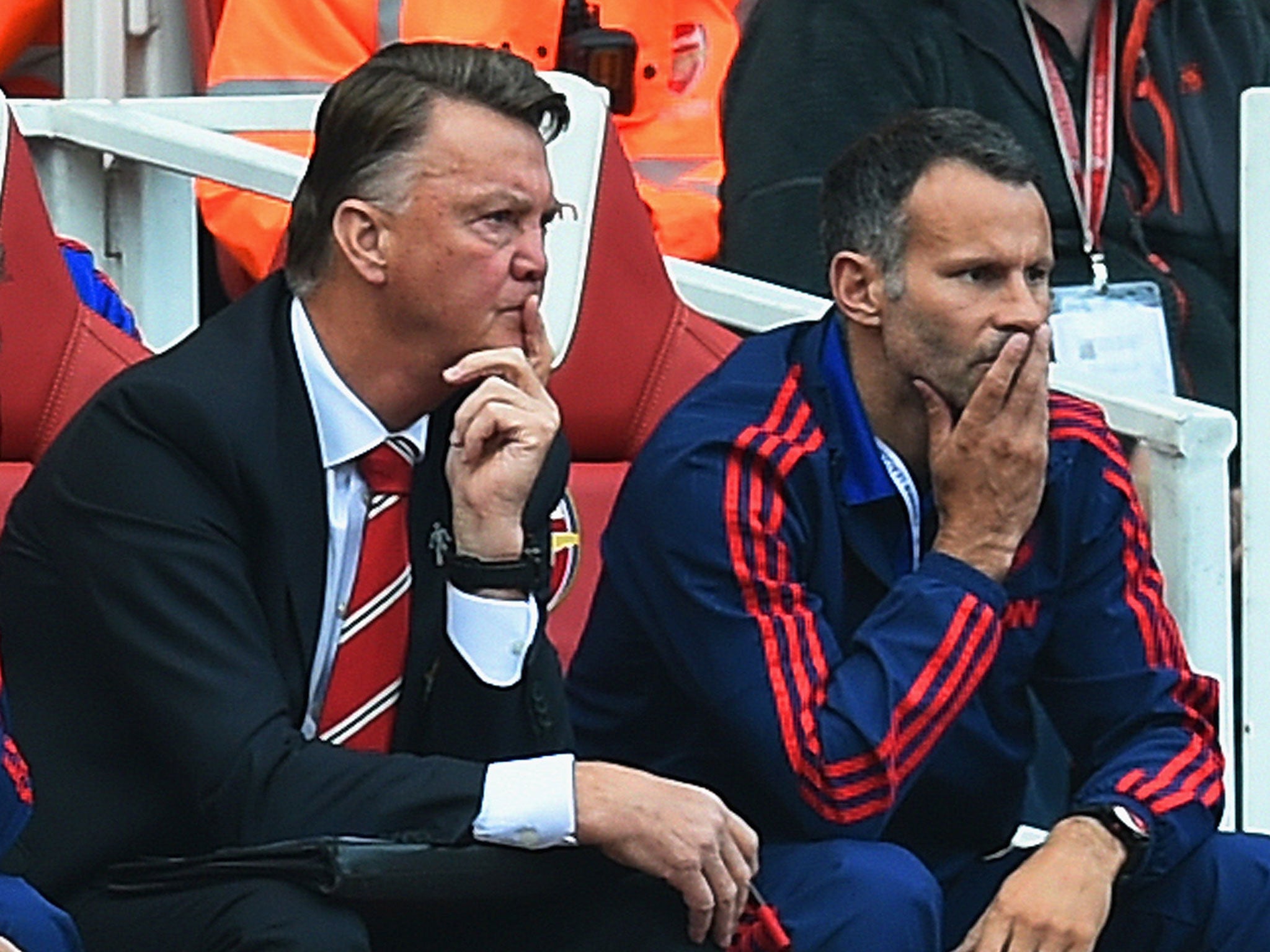Cherrypickers gave Bill Shankly and the rest a lesson in the power of the collective
Sir Alex Ferguson preached the legend of Glenbuck because it fulfilled his beliefs about socialism

Your support helps us to tell the story
From reproductive rights to climate change to Big Tech, The Independent is on the ground when the story is developing. Whether it's investigating the financials of Elon Musk's pro-Trump PAC or producing our latest documentary, 'The A Word', which shines a light on the American women fighting for reproductive rights, we know how important it is to parse out the facts from the messaging.
At such a critical moment in US history, we need reporters on the ground. Your donation allows us to keep sending journalists to speak to both sides of the story.
The Independent is trusted by Americans across the entire political spectrum. And unlike many other quality news outlets, we choose not to lock Americans out of our reporting and analysis with paywalls. We believe quality journalism should be available to everyone, paid for by those who can afford it.
Your support makes all the difference.It is the name which engenders such romance about the greatest football nursery club of them all. The Glenbuck Cherrypickers, who produced four English FA Cup winners, five full internationals and 50 professionals out of an Ayrshire coalmining village whose population never exceeded 1,700, sound exotic and Sir Alex Ferguson has never tired of invoking their memory.
“Come on, who are the Glenbuck Cherrypickers?” he once asked. “And what was a cherrypicker?” he continued, after we’d proved equal to his test. “Was it a hoist?” someone replied. “A hoist?’’ Ferguson shot back, incredulous. He loved explaining to know-nothings from south of the border that it was a colliery term for selecting the best pieces of coal from a pit-head conveyor.
There was nothing romantic or exotic about Glenbuck or its cherrypickers, though. A new book about the club and the community, Shankly’s Village: The Extraordinary Life and Times of Glenbuck and its Famous Footballing Sons, reveals desperation was never far below the surface of that place. The village lived under perennial threat of closure as the coal seam ran out and the mine owners used that to grind the workforce into the dust.
Even the football club the people threw their energy into was built on shifting sands. A new pit-shaft was sunk into its first ground. The second was literally on a hillside. The patch of turf they finally settled on was bordered by the burn and the main road through the village, from where most spectators watched the game. “The so-called dignity of labour could be a cruel joke played on those who had to endure it,” writes author Adam Powley.
What was the Cherrypickers’ secret? Because the output of players could not have been a fluke. An enlightened football philosophy was a part of it. “The art of the game is to make the ball do the running around,” said Hughie Knox, one of the coaches, in the early 1900s, when football did not know such sophistication. But the collectivist, socialist spirit of the place was the most significant reason for their success. The club was a form of identity that they could cherish in their Godforsaken lives and everyone had a say.
The choice of strip – white shirts, black shorts – and the subscription fee – one shilling – were decided by democratic vote. The air of cooperation meant players combined with each other on the field and didn’t indulge in self-absorbed individualism. Entire families were involved – the Bone, Menzies, Knox, Tait and Shankly clans dominated teamsheets – which allowed them to hone tactics. And boy, could they play.
Of course, the raw desperation to be out of that place helped create the footballers, too. The most famous alumnus of all, Bill Shankly, saw his older brother Jimmy’s work, cleaning out the middens (outside toilets to you and me), and saw an escape route from a world where a blind eye was turned to poaching and even stealing: an obligatory part of survival.
Seize it while you can: that was the philosophy, and wisely so. One of the tragedies of the story Powley tells is that the Glenbuck mine closed in the early 1930s and the pitch was flooded because the pit pumping-gear came to a halt. A dramatic 1-0 Ayrshire Junior Cup Final replay win was the last game for a club which at its peak population produced a footballer for every 35 inhabitants. Sheep now graze what was once the Burnside Park ground.
The story is incredibly relevant to these times. Ferguson cherished and preached the legend of Glenbuck because it fulfilled all his beliefs about the value of collectivism and, in a sense, socialism, in the sport we love.
Few of his homilies are more vivid than the one he told Fabien Barthez for an interview in 2011. “What is the greatest thing a team can do?” Ferguson asked Barthez. “They can sacrifice their life for each other and sometimes when one falls two can save him...” He told a favourite story about the geese which fly from Canada to France. “They fly in V-formation but the second ones don’t fly,” he said, repeating a team talk he had told many a time. “They’re the subs for the first ones. And then the second ones take over. So it’s teamwork. If one goose falls ill, two always have to go with him. I was only asking you to go 38 games in the League to win it, not 5,000 miles!”
The fight to escape destitution made incredible characters and thinkers out of the boys of Glenbuck. “Wullie Shankly” of No 2 Auchenstilloch Cottages and, later, Liverpool FC was a prime example. The way he would take over and dominate Glenbuck conversations was not always appreciated, Powley discovers.
The self-confidence ran through the other exports. Robert Blyth, Shankly’s uncle, became manager of Portsmouth; Alex Tait, a member of the Tottenham Hotspur team that won the FA Cup for the first time in 1901, was reporting on Spurs for the Daily Mail five years later. Firebrands all. John Cameron, who left Ayrshire for Everton, was virtually blacklisted for fighting football’s “retain and transfer” rules.
Manchester United, in their wisdom, are looking to preserve some of this Ferguson philosophy. They are currently looking to restructure their academy in a way that does not sweep away the old philosophies about “fun” and independent thinking, one source tells me. It is hard to inculcate that Glenbuck hunger in a £100,000-a-week 20-year-old, though.
Shankly always said that managers or coaches don’t make players. “Their fathers and mothers make them,” he said. “But we help. If they have it in them, we can bring it out.”
Ryan Giggs would do well to step out of Old Trafford shadows
When I asked if Ryan Giggs would discuss Wayne Rooney for a piece to mark his 30th birthday, the answer that came back was “no”. And: “Didn’t you know Ryan doesn’t do interviews now?”
Giggs has vanished into the background these past 18 months, his appearances in the public sphere limited to those seemingly quizzical looks when Louis van Gaal is talking.

Giggs’ old friend Gary Neville has done all he can to stake a claim to Van Gaal’s job by taking the Valencia position. If he is a success at the Mestalla, United would have to consider him in a year or so.
Giggs is the one left behind. He would be shrewd to step out from behind the Old Trafford battlements, and perhaps to strike out alone.
Join our commenting forum
Join thought-provoking conversations, follow other Independent readers and see their replies
Comments